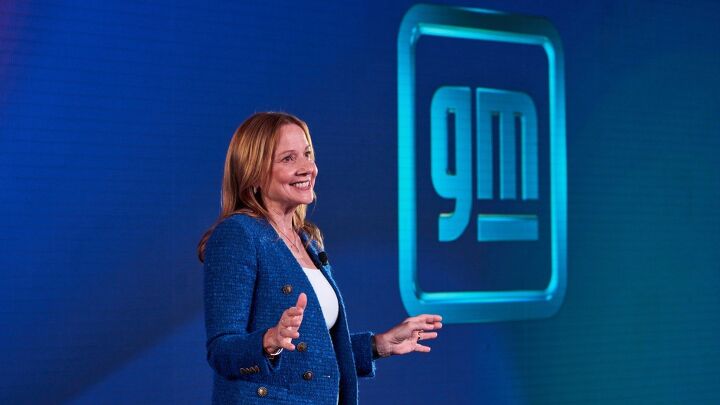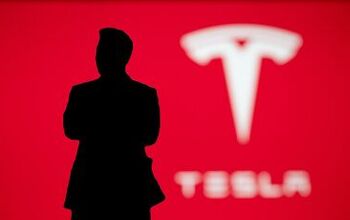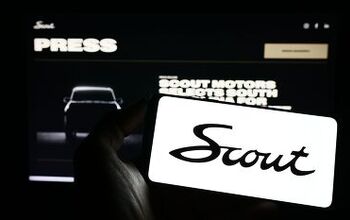Mrs. Barra Goes to Washington

General Motors CEO Mary Barra met with Senate Commerce Committee Chair Maria Cantwell, (D-WA) and fellow Democratic Commerce Committee member Gary Peters in Washington D.C. on Thursday to help lobby for favorable legislation pertaining to self-driving cars. Though it sounds like they were already on board with whatever GM wanted, as they’ve already started repeating familiar rhetoric designed to encourage legislators to tweak Federal Motor Vehicle Safety Standards (FMVSS).
The meetings coincide with Barra's press events discussing how the automaker would like to implement artificial intelligence (including the infamous ChatGPT) into future products.
"We must act to ensure U.S. manufacturers can compete with countries like China, create jobs here and improve roadway safety," Peters, who represents GM’s Michigan homeland, was quoted as saying by Automotive News.
He followed up by mentioning that he had spoken with Barra and discussed "the future of mobility – including autonomous vehicles."
While automakers tapping sympathetic legislators to change automotive regulations is basically a staple of modern governance at this point, the term mobility is old hat, largely meaningless, and makes your author feel as if we’ve all been teleported back to 2014 when the empty rhetoric surrounding self-driving cars really ramped up. At the time, U.S. legislators failed to make sweeping changes to the FMVSS. But the government still said automakers could field a limited number of autonomous test vehicles (usually determined by the state) and self-certify those units as safe under some of the loosest guidance imaginable.
But regulations are tricky and it’s difficult to say what the government should have done even with the benefit of hindsight. Nobody wanted to hinder the development of what looked to be a miraculous new technology. However, legislators and the Department of Transportation didn’t seem terribly comfortable eliminating laws that required vehicles to have modern controls just so automakers could offer transportation without steering wheels – which is something GM seems curiously obsessed with.
From Automotive News:
GM and its self-driving technology unit, Cruise, in February 2022 disclosed that they had petitioned the National Highway Traffic Safety Administration (NHTSA) for permission to deploy up to 2,500 self-driving vehicles annually without steering wheels, mirrors, turn signals or windshield wipers.
GM wants to deploy its Origin vehicle, which has subway-like doors and no steering wheels. GM says vehicles will require passengers to buckle seat belts prior to autonomous rides. The NHTSA opened the petition for public comment in July but has not acted on it.
In 2017, the House of Representatives passed by voice vote legislation to speed the adoption of self-driving cars, bar states from setting performance standards and expand the number of vehicles that could be deployed with exemptions, but the bill never passed the U.S. Senate.
Though it may not have mattered in the end. Despite some desirable advanced driving aids being added in as standard equipment in recent years, much of the related technology has run into trouble and often doesn’t work as reliably as one would have hoped. It has also failed to develop on the promised timelines – with numerous automakers previously having promised that genuine vehicular autonomy would become available by 2020.
Legal hurdles have been another massive obstacle, as having a vehicle that could effectively drive itself raises all kinds of questions about liability. For example, if the system fails to avoid an accident and harms a pedestrian, is that the fault of the driver or the manufacturer? This is something automakers and insurance companies want to figure out – likely attempting to put the onus back on the human driver. But if the vehicle is supposed to handle everything but selecting a destination and the driver doesn’t even have standard controls, that’ll be a tough sell in the courts.
The above has the potential to nullify consumer acceptance while likewise making the technology far less lucrative to automakers. Car companies want self-driving vehicles to provide more opportunities for occupants to interact with interior screens, engaging in advertisements, commercial partnerships, and data-harvesting opportunities they believe will be extremely profitable in the years ahead. This is also why many manufacturers have begun marketing themselves as “software” and/or “mobility” companies over the last decade. But the scheme won’t work unless the law is on their side, so automakers have to reach out to legislators in the hopes that they’ll help forward industry-approved regulatory proposals.
That said, some of us are of the opinion that the industry is putting the cart before the horse here. Self-driving technology has been over-hyped for years and still seems to be years away from producing anything commercially viable.
In December, the NHTSA launched an investigation into the safety of the autonomous driving systems utilized by GM’s Cruise after reports of injuries in rear-end crashes. The agency said it had received notices of incidents in which self-driving Cruise vehicles "may engage in inappropriately hard braking or become immobilized."
That same month, Cruise announced it was cooperating in the investigation, stating that it had "driven nearly 700,000 fully autonomous miles in an extremely complex urban environment with zero life-threatening injuries or fatalities."
[Images: General Motors]
Become a TTAC insider. Get the latest news, features, TTAC takes, and everything else that gets to the truth about cars first by subscribing to our newsletter.

A staunch consumer advocate tracking industry trends and regulation. Before joining TTAC, Matt spent a decade working for marketing and research firms based in NYC. Clients included several of the world’s largest automakers, global tire brands, and aftermarket part suppliers. Dissatisfied with the corporate world and resentful of having to wear suits everyday, he pivoted to writing about cars. Since then, that man has become an ardent supporter of the right-to-repair movement, been interviewed on the auto industry by national radio broadcasts, driven more rental cars than anyone ever should, participated in amateur rallying events, and received the requisite minimum training as sanctioned by the SCCA. Handy with a wrench, Matt grew up surrounded by Detroit auto workers and managed to get a pizza delivery job before he was legally eligible. He later found himself driving box trucks through Manhattan, guaranteeing future sympathy for actual truckers. He continues to conduct research pertaining to the automotive sector as an independent contractor and has since moved back to his native Michigan, closer to where the cars are born. A contrarian, Matt claims to prefer understeer — stating that front and all-wheel drive vehicles cater best to his driving style.
More by Matt Posky
Latest Car Reviews
Read moreLatest Product Reviews
Read moreRecent Comments
- Ras815 Jeep reliability is trash and FCA is a nightmare, but I've got to give credit where credit is due: the Wrangler color palette is consistently one of the best in the industry.
- Tassos Jeep has always been about FREEDOM and freedom to EXPRESS YOURSELF. I, REAL Tassos, LOVE this for the brand it’s buyers. I have ordered one already with a matching blue lives matter American flag sticker.
- Bd2 In the case of a company like Stellanis and their reputation, perhaps they would have better luck with External Combustion.
- Honda1 Only a brain dead moron would do this!
- Master Baiter Ditch the Giga-casting and Robo-taxi. I'd rather have a turn signal stalk.



































Comments
Join the conversation
Here's another inconvenient truth for GM and the Musk hating "Auto Extremist":
https://www.wsj.com/articles/elon-musks-cost-cutting-targets-put-pressure-on-ev-rivals-724d881b?mod=hp_lead_pos1
I wonder if the witch made it to Washington on a single broom charge.